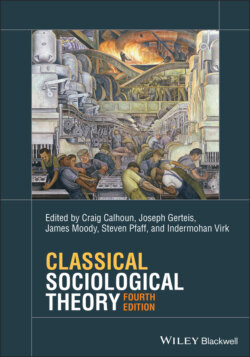Читать книгу Classical Sociological Theory - Группа авторов - Страница 47
NOTES
Оглавление1 1 “Learned inquiries into public right are often only the history of past abuses; and troubling to study them too deeply is a profitless infatuation” (Essay on the Interests of France in Relation to its Neighbours, by the Marquis d’Argenson). This is exactly what Grotius has done.
2 2 See a short treatise of Plutarch’s entitled That Animals Reason.
3 3 The Romans, who understood and respected the right of war more than any other nation on earth, carried their scruples on this head so far that a citizen was not allowed to serve as a volunteer without engaging himself expressly against the enemy, and against such and such an enemy by name. A legion in which the younger Cato was seeing his first service under Popilius having been reconstructed, the elder Cato wrote to Popilius that, if he wished his son to continue serving under him, he must administer to him a new military oath, because, the first having been annulled, he was no longer able to bear arms against the enemy. The same Cato wrote to his son telling him to take great care not to go into battle before taking this new oath. I know that the siege of Clusium and other isolated events can be quoted against me; but I am citing laws and customs. The Romans are the people that least often transgressed its laws; and no other people has had such good ones.
4 4 The real meaning of this word has been almost wholly lost in modern times; most people mistake a town for a city, and a townsman for a citizen. They do not know that houses make a town, but citizens a city. The same mistake long ago cost the Carthaginians dear.I have never read of the title of citizens being given to the subjects of any prince, not even the ancient Macedonians or the English of today, though they are nearer liberty than any one else. The French alone everywhere familiarly adopt the name of citizens, because, as can be seen from their dictionaries, they have no idea of its meaning; otherwise they would be guilty in usurping it, of the crime of lèse-majesté: among them, the name expresses a virtue, and not a right. When Bodin spoke of our citizens and townsmen, he fell into a bad blunder in taking the one class for the other. M. d’Alembert has avoided the error, and, in his article on Geneva, has clearly distinguished the four orders of men (or even five, counting mere foreigners) who dwell in our town, of which two only compose the Republic. No other French writer, to my knowledge, has understood the real meaning of the word citizen.
5 5 Under bad governments, this equality is only apparent and illusory: it serves only to keep the pauper in his poverty and the rich man in the position he has usurped. In fact, laws are always of use to those who possess and harmful to those who have nothing: from which it follows that the social state is advantageous to men only when all have something and none too much.
